On the afternoon of May 16,2025, the International Institute of Finance (IIF) hosted the “Tech Empowerment • Sci-Tech Finance Integration • Global Innovation” Symposium: Exploring Innovative Development and Collaborative Services for Private Enterprises through an International Lens. The event brought together government representatives, state-owned and private investment institutions, legal and financial experts, and business leaders to deliberate on strategies for Chinese private enterprise—particularly technology-driven firms—to navigate globalization amidst the restructuring of international industrial chains. Discussions centered on balancing challenges and opportunities in cross-border expansion, intellectual property management, and compliance frameworks.
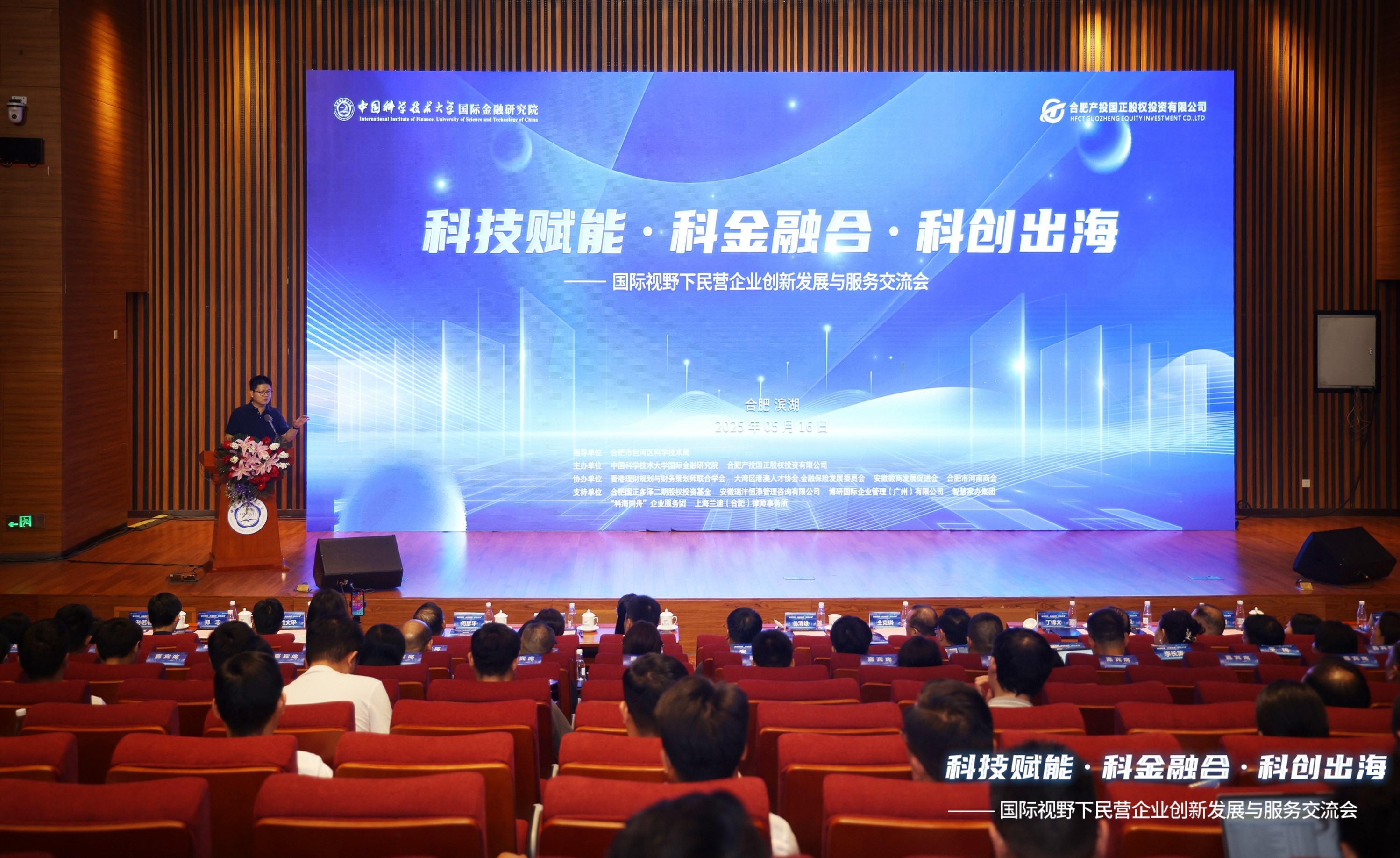
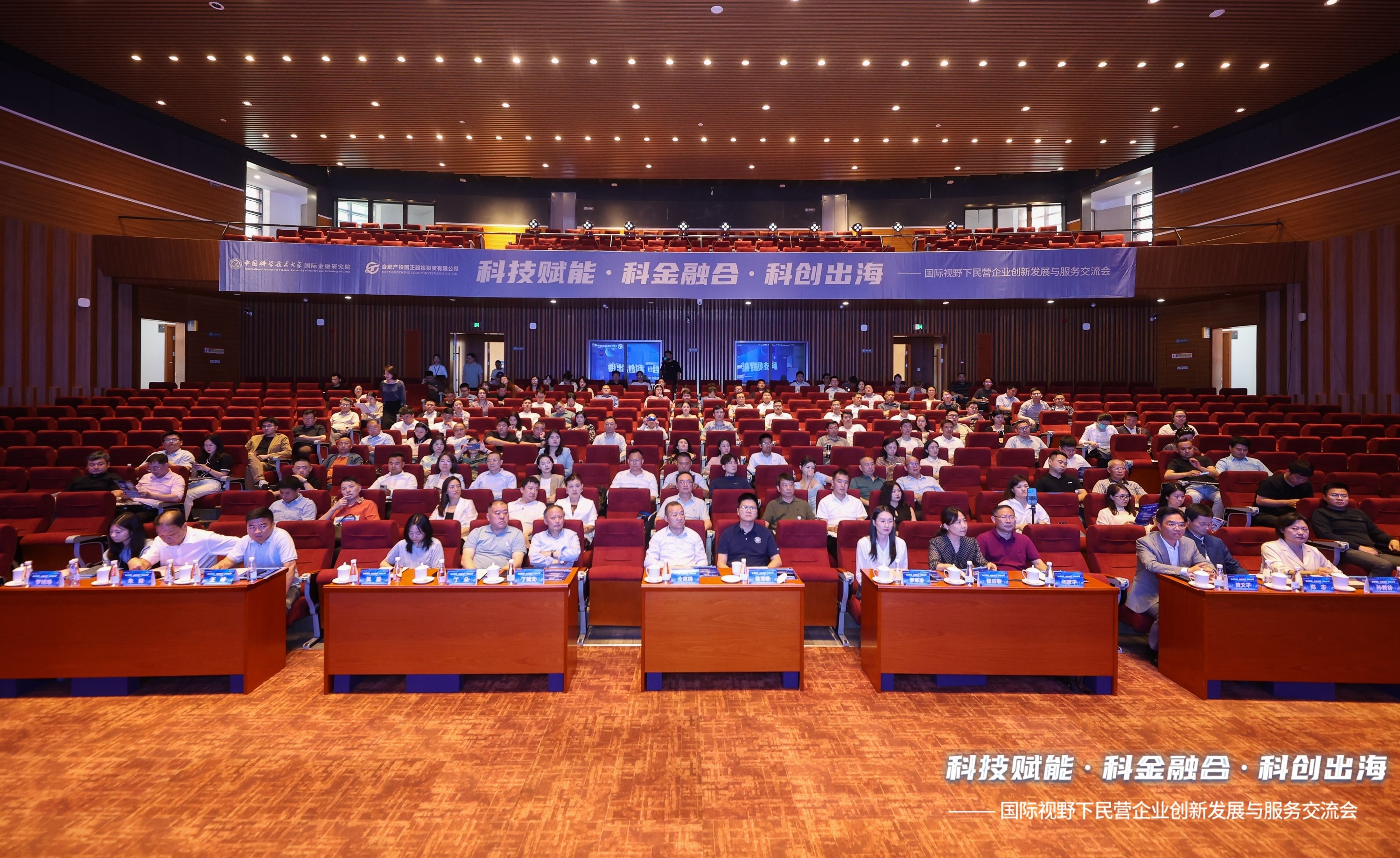
Innovation Breakthroughs under the Dual-Circulation Strategy
Luo Hanling, representing Baohe District, outlined regional initiatives to enhance the innovation ecosystem, emphasizing deepened collaboration with IIF to accelerate the commercialization of scientific achievements. A policy framework termed the “24/7 service commitment” was introduced, pledging to embed “golden seed” technologies into industrial chains through tailored support mechanisms.
Tong Keqi, Chairman of Hefei Industry Investment Guozheng Equity Investment Co., Ltd., underscored Hefei’s progress in emerging sectors such as integrated circuits and quantum computing. He affirmed the alignment of the symposium’s themes with the city’s strategic goals, advocating for public-private partnerships to unlock global opportunities in sci-tech finance.
Professor Weng Qingxiong, Vice President of IIF, articulated the institute’s mission to bridge academia and industry through data-driven insights, pledging multidimensional support in trend analysis, resource integration, and capacity building for enterprises navigating international markets.
Keynote Addresses:Decoding Growth Challenges, Fortifying Strategic Resilience
Dr. Huang Wenping, a prominent entrepreneurship mentor, presented "Navigating Challenges and Driving Innovation in China's Private Sector", advocating a tripartite strategy of core business stabilization, global ecosystem positioning, and disruptive innovation. He demonstrated how integrating technological empowerment with science-finance convergence could resolve generational transition dilemmas in family-owned enterprises, proposing actionable frameworks for building sustainable governance architectures and revitalizing competitive differentiation in traditional industries.

Zheng Zhi,Managing Partner of Shanghai Landy (Hefei) Law Firm and co-founder of the Global Expansion Practice Committee at Randy & Partners, delivered the session "Cross-Border M&A Strategies for Technology Innovators". Systematically analyzing opportunities amid the fifth global industrial realignment, he delineated Southeast Asia's investment potential with market-entry roadmaps, while emphasizing compliance and post-merger integration risk mitigation through forensic case studies. His legal-commercial insights equip expanding enterprises with systemic methodologies to balance technological assimilation and ecosystem collaboration in global scaling initiatives.
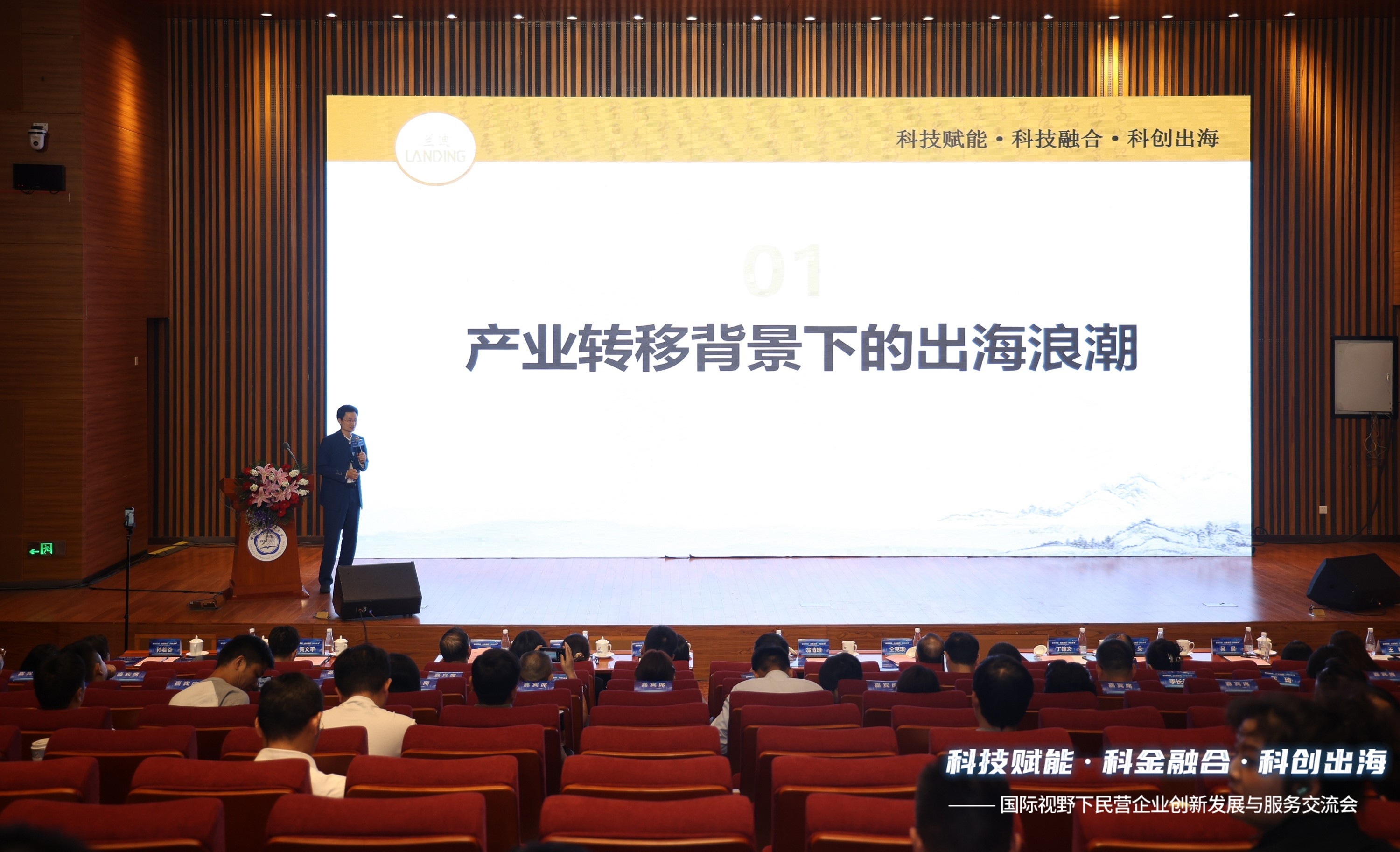
Enterprise Case Studies: Globalizing Chinese Innovation
During the "Corporate Case Study" session, Liu Lei from Anhui Jingyimen Technology Development Co., Ltd.—a nationally recognized "Little Giant" enterprise specializing in niche innovation—detailed how the company’s globalization strategy has driven collaborative upgrades across the industrial chain and established standardized operational frameworks. By implementing a trinity strategy integrating "product excellence, operational models, and brand empowerment," the firm has enhanced its technological R&D capabilities and optimized supply chain efficiency. This approach enabled effective global resource integration, significantly boosting the brand’s international influence and market share. These advancements not only elevated the value proposition of the entire industrial chain but also accelerated the global substitution of domestically developed functional film materials in key markets.
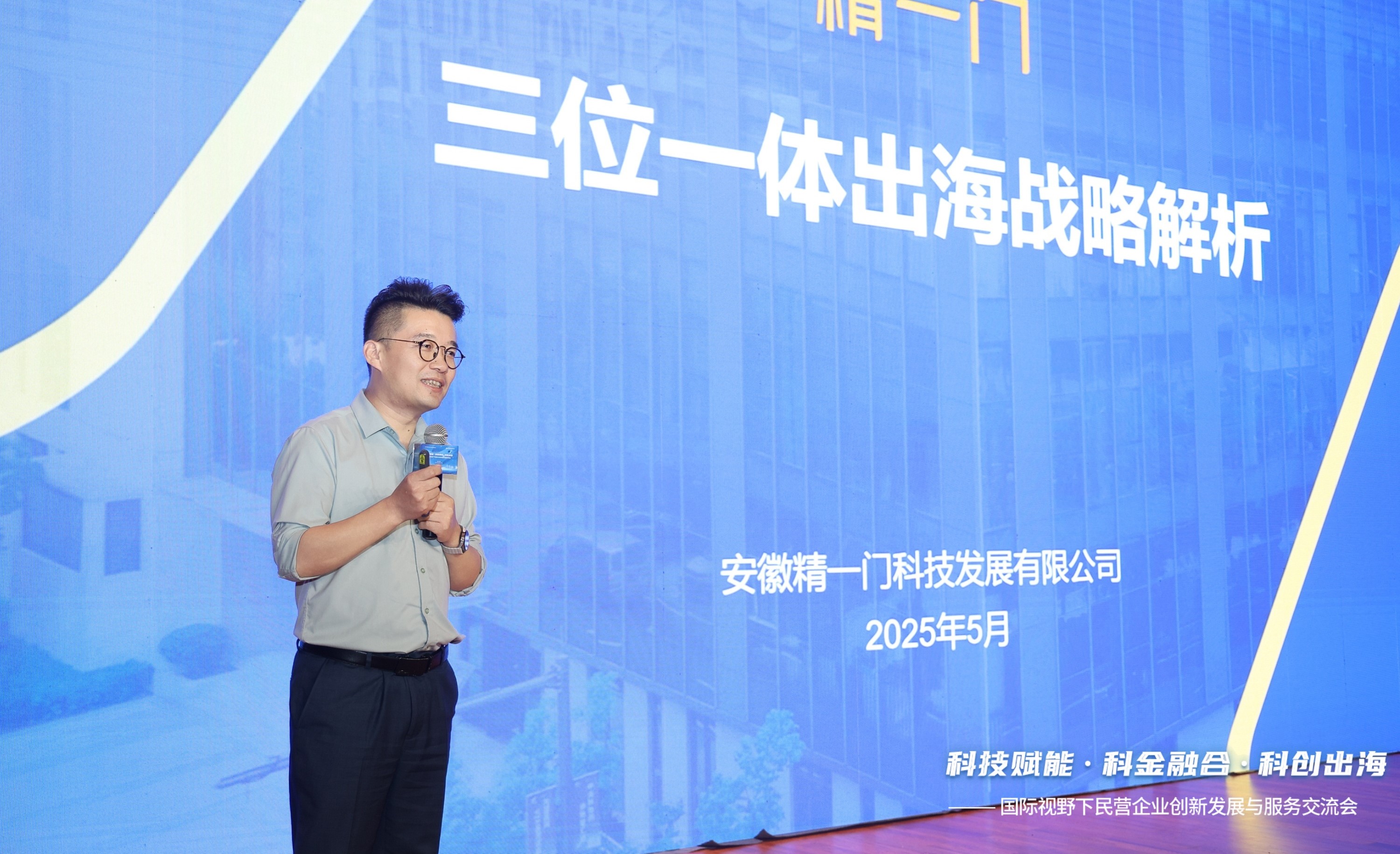
Tang Neng, General Manager of Hefei Alpha Intelligent Agricultural Machinery—an IIF Science and Innovation Base alumni-incubated enterprise—elaborated on the tripartite value proposition of global expansion for businesses, highlighting three strategic advantages: overcoming domestic market saturation through accessing emerging markets, optimizing resource allocation and operational efficiency across international supply chains, and propelling innovation cycles while fortifying competitive positioning in frontier agricultural technologies.
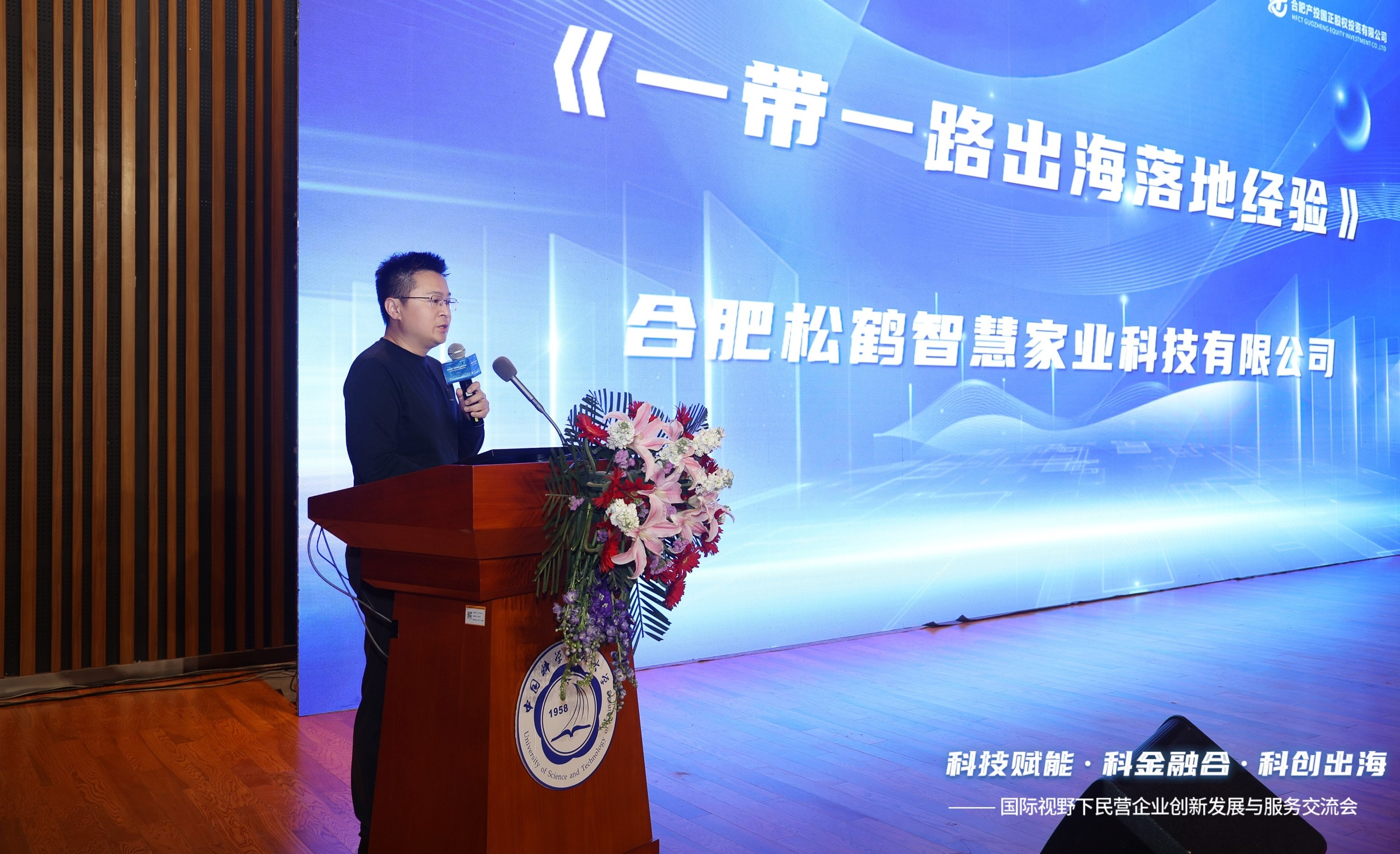
Fei Caiyi, Co-Founder and Vice President of Chengshi Biopharmaceuticals, outlined the company’s strategic advancements through four key dimensions: technological barriers and global competitiveness, scalable production and delivery assurance, international collaboration and market penetration, and social value aligned with policy frameworks. He emphasized how Chengshi’s self-developed mRNA vaccine technology has achieved groundbreaking breakthroughs in veterinary applications, enabling large-scale production under stringent quality controls. Supported by national policies, the company has accelerated its global expansion, establishing robust biosecurity barriers for the livestock industry across Belt and Road Initiative (BRI) partner countries. By integrating cutting-edge R&D with localized supply chains and multilateral partnerships, Chengshi exemplifies how Chinese private enterprises are reshaping international industrial ecosystems through technological sovereignty and value-driven globalization strategies.
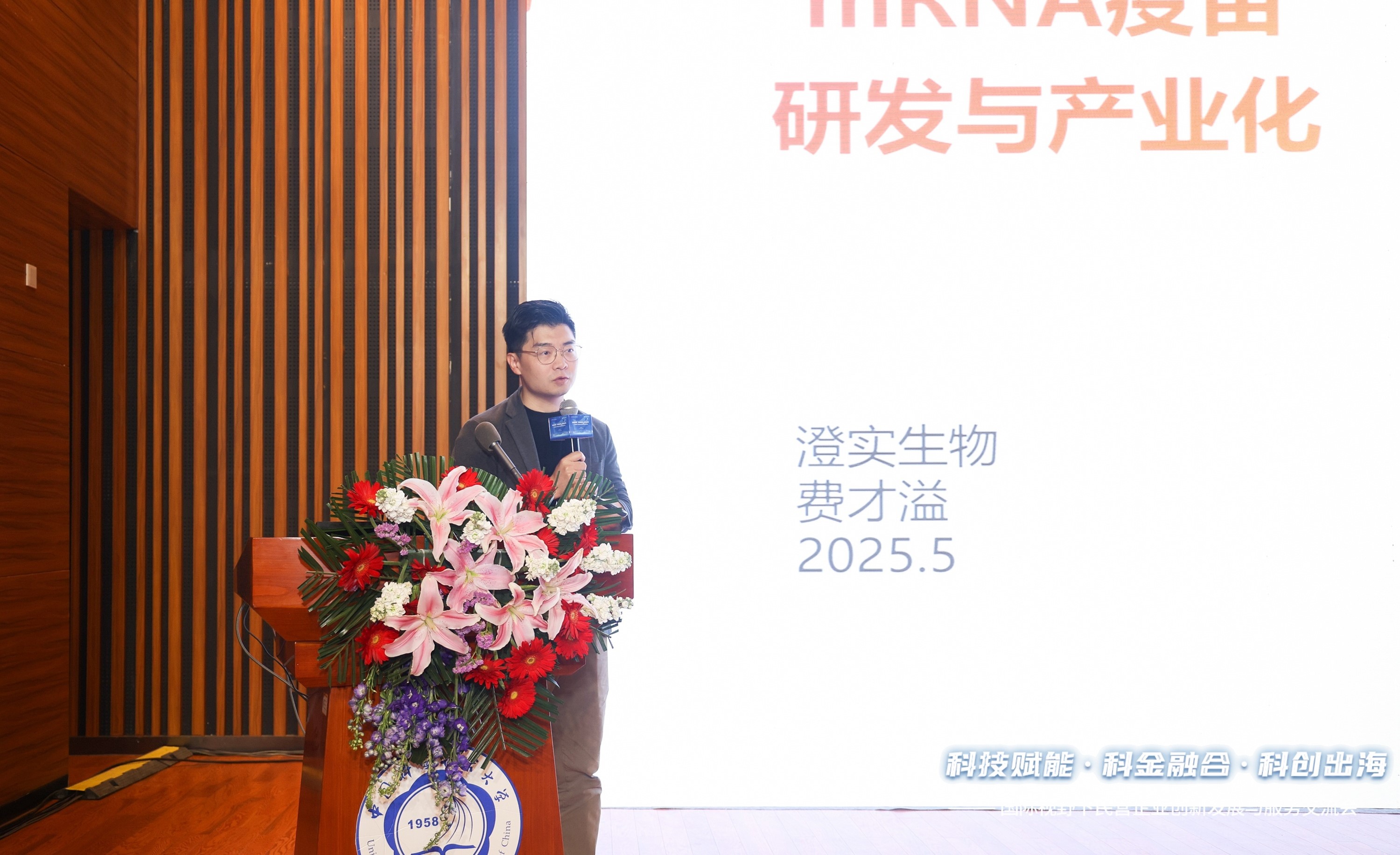
Charting the Future: Collaborative Pathways for Global Tech Ecosystems
The symposium established a globally oriented dialogue platform uniting private enterprises with financial, legal, and tax professionals, systematically addressing chronic challenges in corporate globalization - including ambiguous technology commercialization pathways, inefficient cross-border capital mobilization, and inadequate compliance frameworks. Through its integrated service ecosystem combining trend forecasting, resource orchestration, and institutional capacity building, the initiative empowers businesses to harness technological innovation, synergize scientific and financial capital, and accelerate international expansion of R&D achievements. This collaborative model injects fresh momentum into the Yangtze River Delta's innovation landscape under China's dual-circulation development paradigm. Moving forward, the National Institute of Financial Research (NIFR) will deepen its specialization in science-innovation services, leveraging precision resource integration and professional platform capabilities to fortify private enterprises' global competitiveness, thereby elevating the entire nation's innovation ecosystem to new strategic heights.